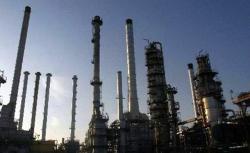Iraq shortlisted Reliance Industries and six other firms for developing its Nasiriya oilfield and the construction of an associated 300,000 barrels per day refinery. Besides RIL, French energy giant Total, Russia's Lukoil, CNPC of China and American firm Brown Energy have been shortlisted for the project, according to Iraq's Oil Ministry.
Besides RIL, French energy giant Total, Russia's Lukoil, CNPC of China and American firm Brown Energy have been shortlisted for the project, according to Iraq's Oil Ministry.
Russia's Zarubezhneft and JGC & Tonen General of Japan are the other two shortlisted from 14 companies that expressed interest in taking up the multi-billion dollar project.
The seven qualified firms will now be invited to review data packages and discuss contract terms. Iraq intends to award the project by year end.
The OPEC nation has three main refineries - Baiji, Daura and Basra - with a total capacity of around 567,000 barrels per day (bpd). It wants to increase the refining capacity to 750,000 bpd through improvements in existing plants.
It also plans four new refineries in Karbala, Kirkuk, Missan and in Nassiriya.
"The Al-Nasiriya Integrated Project contemplates the development of the 4+ billion barrel Nasiriya oil field in Thi-Qar province together with the construction and operation of a new 300,000 bpd refinery," Iraq's Petroleum Contracts & Licensing Directorate (PCLD),
The international engineering and construction firm Foster Wheeler recently completed a Front End Engineering and Design (FEED) study for the refinery.
The Nasiriya project marks re-entry of RIL into Iraq.
The company's Dubai-based arm Reliance Exploration and Production DMCC had in 2007 taken a 100 per cent stake in the Rovi and Sarta blocks in Kurdistan.
Baghdad termed the award of exploration contract to RIL and other firms by the autonomous Kurdistan region as illegal and threatened to blacklist any firm that dealt with the Kurds.
A year after the blacklisting threat, RIL did not apply for being shortlisted for development of oil fields in Iraq.
Thereafter, it did not figure in the list of companies applying to bid for successive licensing rounds of Iraq.
RIL finally got rid of the Kurd blocks in July last year when it sold its stake to Chevron Corp for an undisclosed sum.
With the Kurd baggage off its back, the company is back at doing business with Iraq and applied to be qualified for the Nassiriya project.
After years of war and sanctions, Iraq aims to produce 5-6 million bpd of crude by 2015 against a current output of 3.4 million bpd, the highest in three decades.










